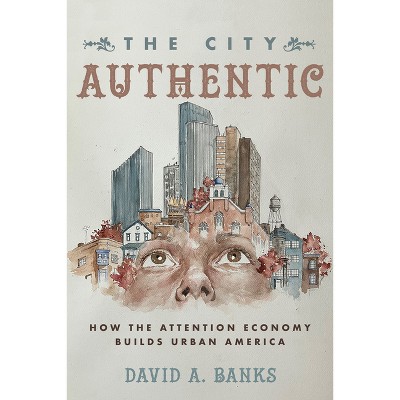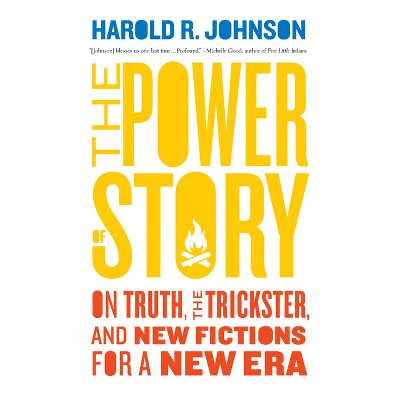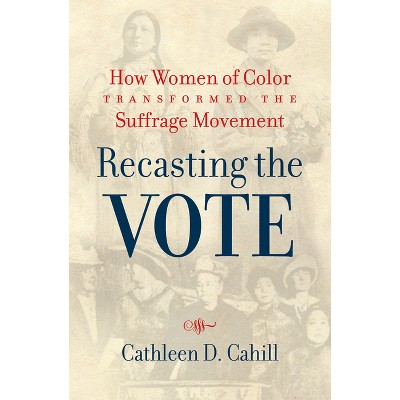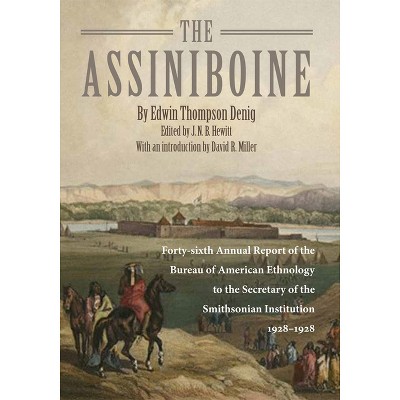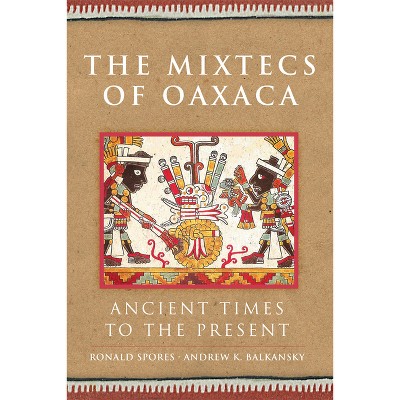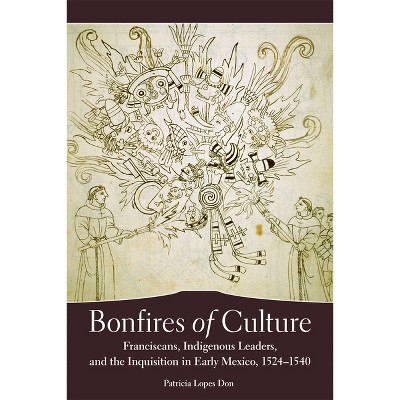Sponsored

Indian Cities - by Kent Blansett & Cathleen D Cahill & Andrew Needham (Paperback)
$32.95
In Stock
Eligible for registries and wish lists
Sponsored
About this item
Highlights
- From ancient metropolises like Pueblo Bonito and Tenochtitlán to the twenty-first century Oceti Sakowin encampment of NoDAPL water protectors, Native people have built and lived in cities--a fact little noted in either urban or Indigenous histories.
- Author(s): Kent Blansett & Cathleen D Cahill & Andrew Needham
- 346 Pages
- History, Native American
Description
About the Book
All the contributions to this volume show how, from colonial times to the present day, Indigenous people have shaped and been shaped by urban spaces. Collectively they demonstrate that urban history and Indigenous history are incomplete without each other.Book Synopsis
From ancient metropolises like Pueblo Bonito and Tenochtitlán to the twenty-first century Oceti Sakowin encampment of NoDAPL water protectors, Native people have built and lived in cities--a fact little noted in either urban or Indigenous histories. By foregrounding Indigenous peoples as city makers and city dwellers, as agents and subjects of urbanization, the essays in this volume simultaneously highlight the impact of Indigenous people on urban places and the effects of urbanism on Indigenous people and politics. The authors--Native and non-Native, anthropologists and geographers as well as historians--use the term "Indian cities" to represent collective urban spaces established and regulated by a range of institutions, organizations, churches, and businesses. These urban institutions have strengthened tribal and intertribal identities, creating new forms of shared experience and giving rise to new practices of Indigeneity. Some of the essays in this volume explore Native participation in everyday economic activities, whether in the commerce of colonial Charleston or in the early development of New Orleans. Others show how Native Americans became entwined in the symbolism associated with Niagara Falls and Washington, D.C., with dramatically different consequences for Native and non-Native perspectives. Still others describe the roles local Indigenous community groups have played in building urban Native American communities, from Dallas to Winnipeg. All the contributions to this volume show how, from colonial times to the present day, Indigenous people have shaped and been shaped by urban spaces. Collectively they demonstrate that urban history and Indigenous history are incomplete without each other.Review Quotes
"Indian Cities brings together cutting-edge scholarship on urban Native America and provides an important theoretical framework for making sense of this history in the context of American settler colonialism."--Journal of Southern History
"As with any collection of reading, Indian Cities: Histories of Indigenous Urbanization is a testimony to the burgeoning, wide-ranging scholarship about Native American experiences. At its broadest conception, the urban Indigenous heritage is a vital but sometimes overlooked component of Native American lifeways. Urban indigeneity, whether expressed by tangible of intangible means, provides a sense of belonging, continuity, and collectivity. As this volume aptly illustrates, Native American urban issues are a complex arena that deserves further scholarly attention. Overall, the contributions are a framework for reflection, debate, and new avenues for research."-- Great Plains Research
"From Winnipeg to what is for the moment known as the American Southwest, from the eighteenth century to the twenty-first, Indian Cities offers some of the best work so far on the intersection of Indigenous and urban histories. Moving beyond simplistic settler narratives that have all too often estranged urban and Indigenous histories from each other, this collection highlights the diversity of Indigenous experiences in places ranging from national capitals to reservation border towns. Emphasizing ongoing projects of both dispossession and justice, these essays make a powerful case for centering Indigenous people and settler colonialism in North America's urban history."--Coll Thrush, author of Native Seattle and Indigenous London
"The multitude of essays in Indian Cities: Histories of Indigenous Urbanization provides several avenues to view the relationship between Indigeneity and urban places. While each focuses on different aspects of Indigenous urban history, the authors effectively connect all to the themes of settler-colonialism, Indigenous erasure, and the impact of harmful narratives on Native history. Conversely, they advance the themes of Indigenous sovereignty, tribal nationalism, and Indigenous belonging. Indian Cities provides a pointed view of overlooked areas of Indigenous and urban scholarship. Focusing on disregarded cities in these specialties, such as Winnipeg, Dallas, and Rapid City, and discussing neglected Indigenous actors, such as women."--Chronicles of Oklahoma
"Covering a broad range of topics, Indian Cities provides valuable insights into the urban spaces created by Native Americans while race relations were being redefined. This book calls for us to rethink the whole context of Indian-white relations as an integral part of urban America."--Donald L. Fixico (Shawnee, Sac & Fox, Muscogee, and Seminole), author of The Urban Indian Experience in America
Dimensions (Overall): 9.0 Inches (H) x 6.0 Inches (W) x .77 Inches (D)
Weight: 1.11 Pounds
Suggested Age: 22 Years and Up
Number of Pages: 346
Genre: History
Sub-Genre: Native American
Publisher: University of Oklahoma Press
Format: Paperback
Author: Kent Blansett & Cathleen D Cahill & Andrew Needham
Language: English
Street Date: February 17, 2022
TCIN: 88966681
UPC: 9780806176635
Item Number (DPCI): 247-11-5187
Origin: Made in the USA or Imported
If the item details aren’t accurate or complete, we want to know about it.
Shipping details
Estimated ship dimensions: 0.77 inches length x 6 inches width x 9 inches height
Estimated ship weight: 1.11 pounds
We regret that this item cannot be shipped to PO Boxes.
This item cannot be shipped to the following locations: American Samoa (see also separate entry under AS), Guam (see also separate entry under GU), Northern Mariana Islands, Puerto Rico (see also separate entry under PR), United States Minor Outlying Islands, Virgin Islands, U.S., APO/FPO
Return details
This item can be returned to any Target store or Target.com.
This item must be returned within 90 days of the date it was purchased in store, shipped, delivered by a Shipt shopper, or made ready for pickup.
See the return policy for complete information.
Frequently bought together

$55.22 - $55.80
MSRP $60.00 - $99.00
4.7 out of 5 stars with 34 ratings
Trending Non-Fiction

$4.59
MSRP $7.99
Save $5 when you spend $20 on select books
4.8 out of 5 stars with 123 ratings

$6.20
MSRP $10.95
Save $5 when you spend $20 on select books
4.8 out of 5 stars with 33 ratings

$7.09
MSRP $9.99
Save $5 when you spend $20 on select books
4.9 out of 5 stars with 46 ratings

